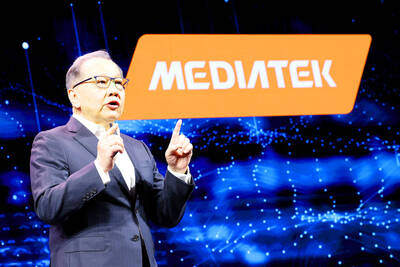WPP PLC yesterday appointed Mark Read as chief executive officer to succeed long-time leader Martin Sorrell, picking the internal favorite to usher in a new culture and direction at the advertising giant.
Read has been helping to run the world’s largest ad company as interim co-chief operating officer since Sorrell’s sudden departure in April and was to start as chief executive officer immediately.
The 51-year-old takes the helm at a tough time for WPP and the ad industry. The company’s shares have been hit as the consumer goods industry cuts ad spending and competition intensifies with new digital rivals.
WPP, a vast network of hundreds of ad agencies, including J. Walter Thompson and Ogilvy, was forced to find a new leader when Sorrell resigned after a board probe into allegations of misconduct, which he denied.
Read is popular internally: A dozen WPP executives in recent weeks told reporters he is more collaborative and thoughtful than Sorrell and they believe he has the company know-how to revive WPP’s fortunes.
The priority for WPP’s board is pursuing a clear vision for change and fostering a culture that attracts the best and brightest, WPP chairman Roberto Quarta said in a statement.
Bloomberg reported on Friday last week that WPP was preparing to appoint Read as chief executive officer as early as this week.
WPP’s shares were unchanged at £12.78 at 8:09am in London yesterday.
Read is to be paid an annual salary of £975,000 (US$1.26 million) plus the opportunity for bonuses. His total pay is to be lower than that received by Sorrell after a string of shareholder rebellions led WPP to curb maximum pay packages.
For many years, Sorrell was the highest-paid chief executive officer in Britain’s FTSE 100 index of leading companies.
Read’s contract also includes clauses that restrict him from going to work for a rival firm, or competing against WPP should he leave.
WPP came under fire after it emerged in April that Sorrell’s contract did not include such provisions.
Andrew Scott, who has shared the interim co-chief operating officer job with Read since April, will stay on as chief operating officer on a permanent basis.
Quarta, who had become executive chairman when Sorrell left, has resumed his role as chairman.

Taiwanese suppliers to Taiwan Semiconductor Manufacturing Co. (TSMC, 台積電) are expected to follow the contract chipmaker’s step to invest in the US, but their relocation may be seven to eight years away, Minister of Economic Affairs J.W. Kuo (郭智輝) said yesterday. When asked by opposition Chinese Nationalist Party (KMT) Legislator Niu Hsu-ting (牛煦庭) in the legislature about growing concerns that TSMC’s huge investments in the US will prompt its suppliers to follow suit, Kuo said based on the chipmaker’s current limited production volume, it is unlikely to lead its supply chain to go there for now. “Unless TSMC completes its planned six

Intel Corp has named Tasha Chuang (莊蓓瑜) to lead Intel Taiwan in a bid to reinforce relations between the company and its Taiwanese partners. The appointment of Chuang as general manager for Intel Taiwan takes effect on Thursday, the firm said in a statement yesterday. Chuang is to lead her team in Taiwan to pursue product development and sales growth in an effort to reinforce the company’s ties with its partners and clients, Intel said. Chuang was previously in charge of managing Intel’s ties with leading Taiwanese PC brand Asustek Computer Inc (華碩), which included helping Asustek strengthen its global businesses, the company

Power supply and electronic components maker Delta Electronics Inc (台達電) yesterday said second-quarter revenue is expected to surpass the first quarter, which rose 30 percent year-on-year to NT$118.92 billion (US$3.71 billion). Revenue this quarter is likely to grow, as US clients have front-loaded orders ahead of US President Donald Trump’s planned tariffs on Taiwanese goods, Delta chairman Ping Cheng (鄭平) said at an earnings conference in Taipei, referring to the 90-day pause in tariff implementation Trump announced on April 9. While situations in the third and fourth quarters remain unclear, “We will not halt our long-term deployments and do not plan to

NOT OVERLY PESSIMISTIC: While consumer electronics demand remains volatile, MediaTek CEO Rick Tsai said that tariffs would have limited effect on the company Chip designer MediaTek Inc (聯發科) yesterday said revenue this quarter would contract by 4 percent sequentially in the worst-case scenario on softer smartphone demand. Revenue is expected to be between NT$147.2 billion and NT$159.4 billion (US$4.6 billion-US$4.98 billion), compared with NT$153.31 billion last quarter, the company said. MediaTek said demand for smartphone chips would be flat or slide sequentially this quarter, while demand for smart devices and power chips would go up. Mobile phone chips made up 56 percent of the company’s total revenue last quarter. Gross margin of 46 to 49 percent is forecast for this quarter, compared with 48.1 percent last